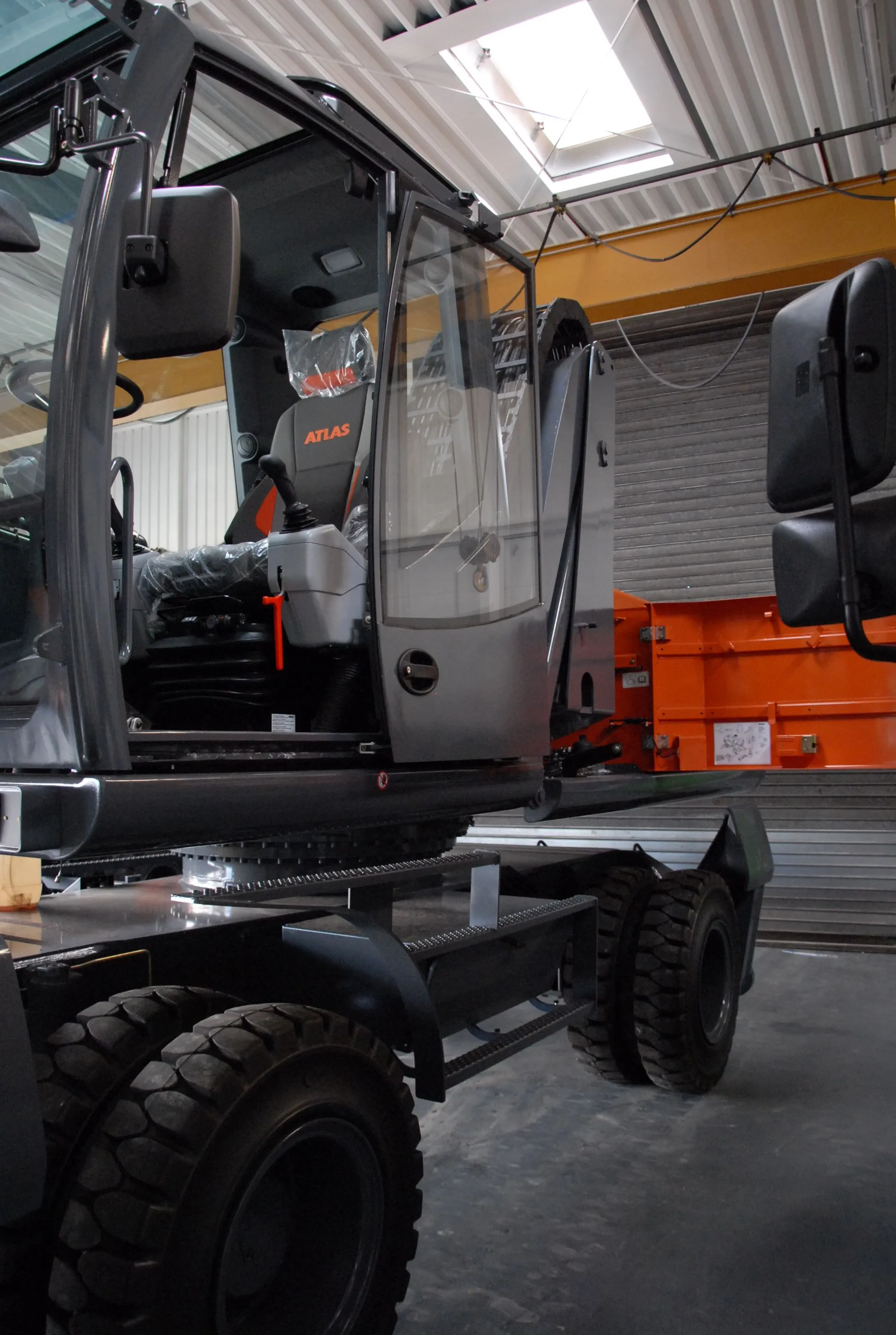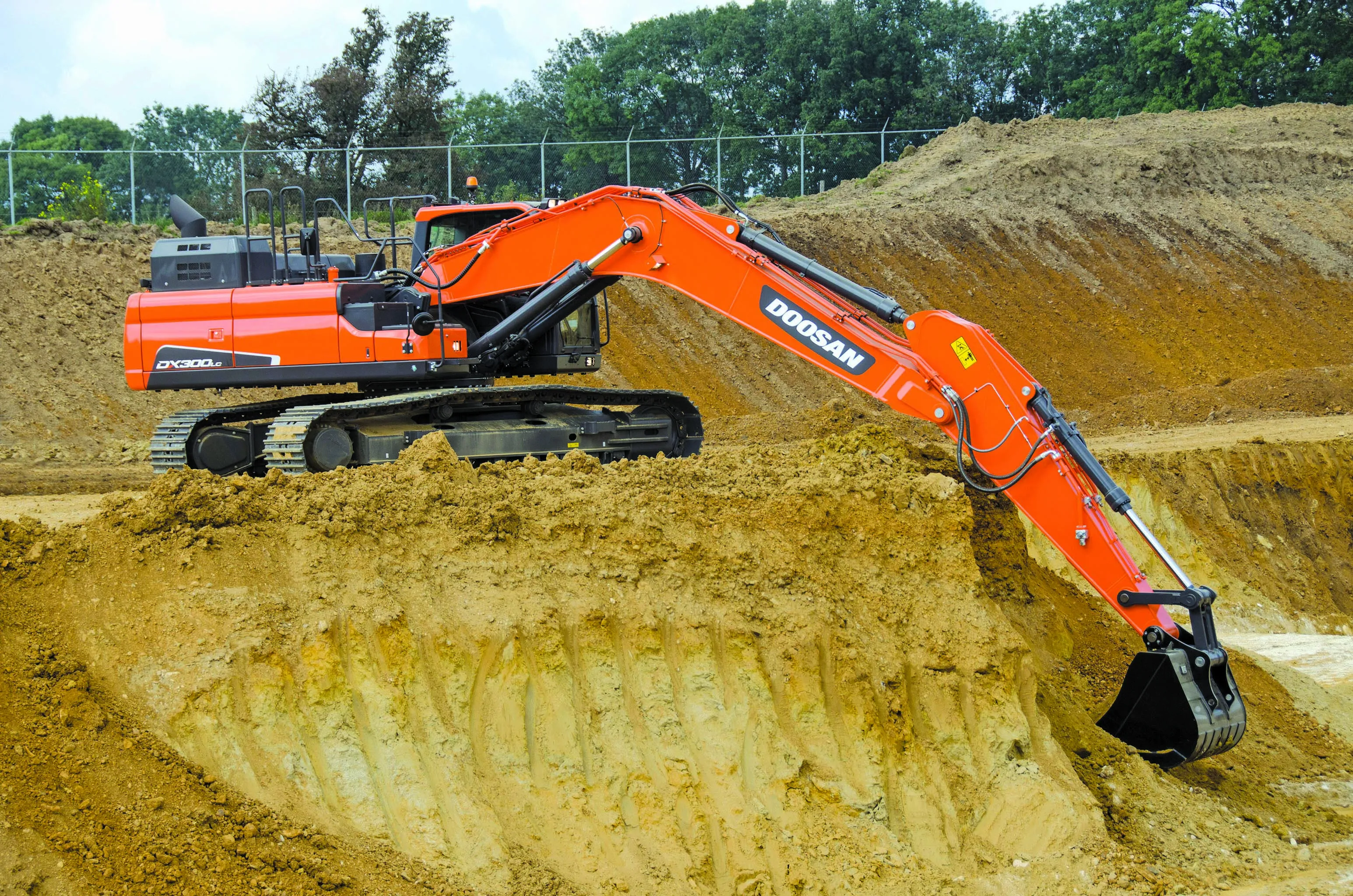Atlas is unveiling its newest excavator, the 350MH-E. It is so new that only the prototype was available at the beginning of this year, but the company is proud of its all-electric version of its best-selling 350MH.
Atlas claims the electric version will have around 25% less operating cost than a traditional excavator. But even though it is electric, it uses 95% of the same parts are the non-electric model making just as easy to maintain.
January 6, 2017
Read time: 2 mins

Atlas claims the electric version will have around 25% less operating cost than a traditional excavator. But even though it is electric, it uses 95% of the same parts are the non-electric model making just as easy to maintain.
The 170kW engine gets its power through 80m of cable wrapped around a cable wheel at the rear of the vehicle. Power is through a 24V 40A transformer and total power of the machine is around 70kW.
The operator has a better view to the rear of the machine because of a lower vehicle profile, thanks to the electric engine. The operator also has electric climate control and heating and there is an optional rear-view camera with colour display. Atlas is continually updating its equipment and the new cabs now have LED interior lighting and a removable lower windscreen for better visibility and come with a sliding door.
The 160Wsr short-tail wheeled excavator now has the same equipment as found in the standard wheeled excavator range, including the 05-electronics and automatic air conditioning as standard. It is now also possible to program the oil pressure and flow for up to 10 attachment tools.
All machines with








